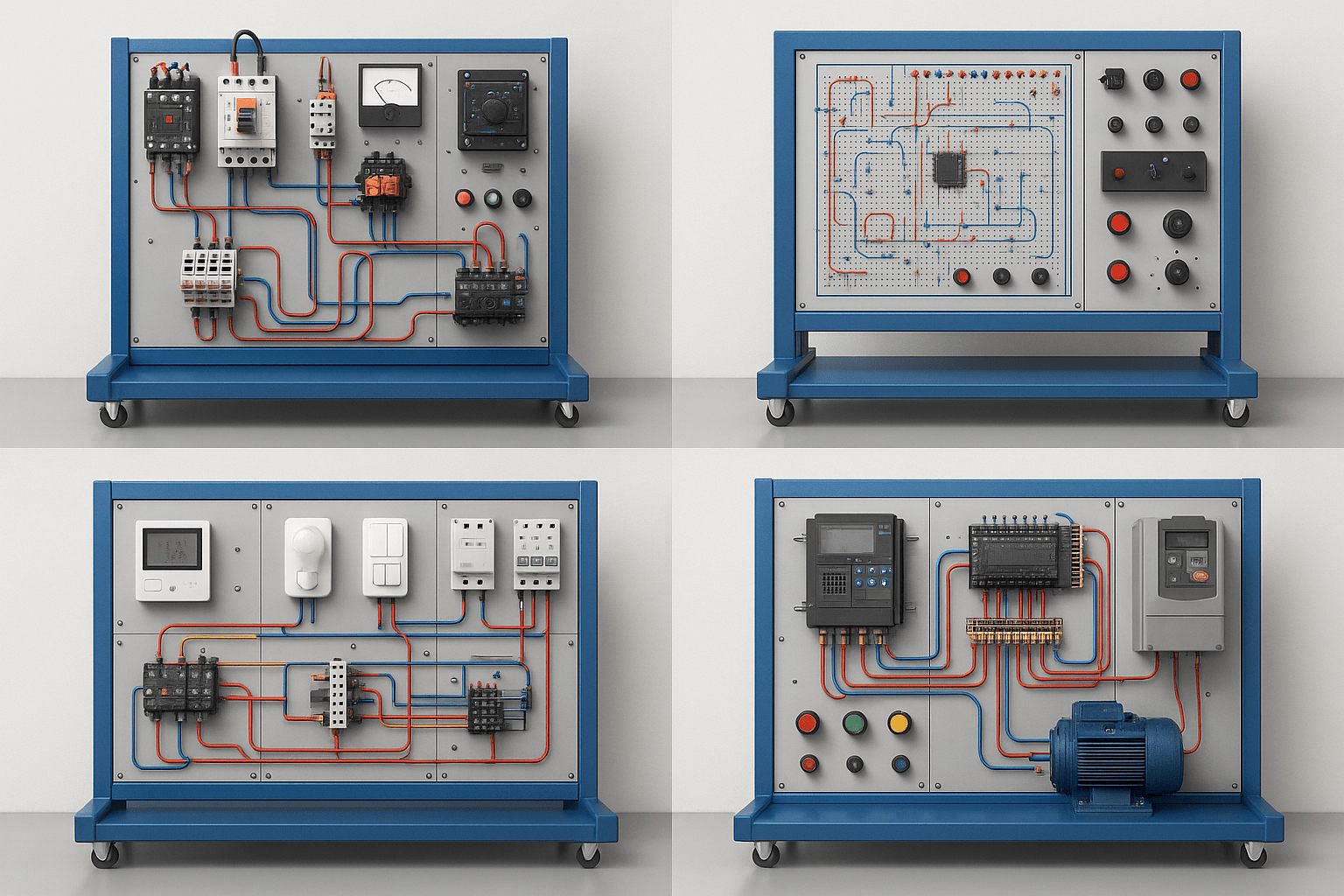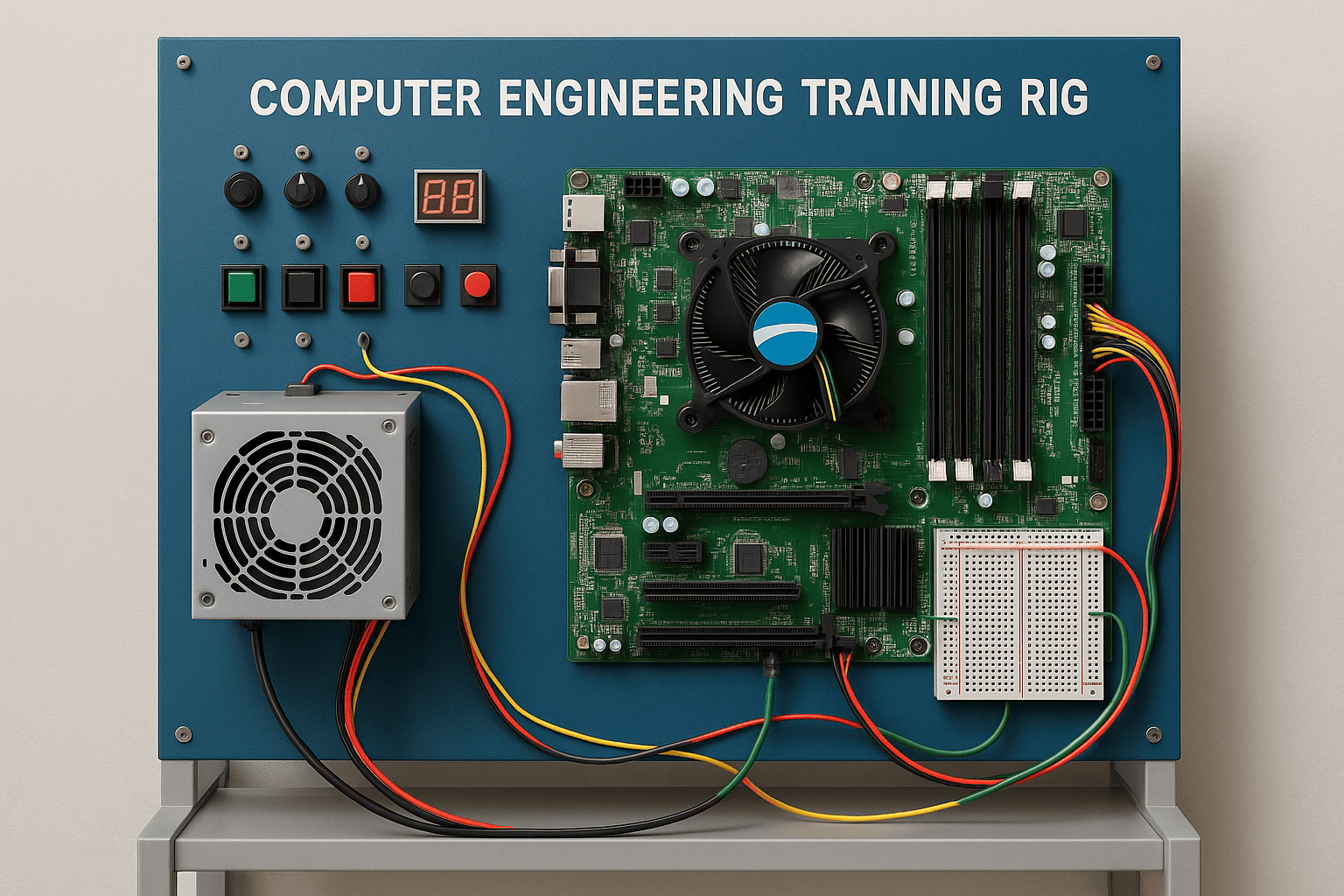Electrical/Electronic & Computer Engineering
⚡Electrical/Electronic Engineering – Level 3 Course Overview
At Level 3 education, the Electrical/Electronic Engineering program is designed to build core competencies in both power systems and electronic technologies used across domestic, industrial, and digital systems. This qualification prepares students for technician-level roles in the electrical and electronics sector. It focuses on both practical and theoretical knowledge to install, maintain, and troubleshoot electrical circuits, devices, and electronic systems.

- Understand electrical principles:
voltage, current, resistance, power, and Ohm’s law
- Build and test series, parallel,
and combination circuits
- Design and construct basic
electronic circuits using resistors, capacitors, diodes, and transistors
- Learn safe working practices in
electrical installations and maintenance
- Install and test single-phase and
three-phase wiring systems
- Use diagnostic tools
(multimeters, oscilloscopes, signal generators) to test electronic components
- Gain introductory knowledge in
digital logic, microcontrollers, and PCB development
- Apply electrical drawing and
schematic interpretation
Hands-on workshops include residential wiring setups, circuit board prototyping, and fault-finding exercises.
🖥️ Computer Engineering – Level 3 Course Overview
This course provides students with practical and theoretical knowledge in computer hardware, digital systems, operating systems, and basic networking. Learners develop the skills needed to support IT infrastructure, troubleshoot hardware faults, and manage small-scale systems.

- Understand computer architecture: CPU, memory, storage, buses, and I/O interfaces
- Assemble, configure, and troubleshoot desktop and laptop computers
- Install and manage operating systems (Windows, Linux) and essential utilities
- Perform maintenance, diagnostics, and upgrades of computer hardware
- Learn the basics of digital electronics and microprocessor systems
- Understand and implement basic networking concepts (IP addressing, LAN setup, routing)
- Use tools for system backup, recovery, and cybersecurity fundamentals
- Develop foundational skills in scripting or programming (e.g., Python or Bash)
Workshops may include hands-on PC building, BIOS configuration, fault diagnostics, and basic embedded system projects.
Embrace the support and resources available to you and watch as your potential unfolds before your eyes. Seize each opportunity to learn and grow, pushing the boundaries of what you thought possible. With dedication and perseverance, you will not only achieve your goals but also inspire others to embark on their own journeys of self-discovery and success.
